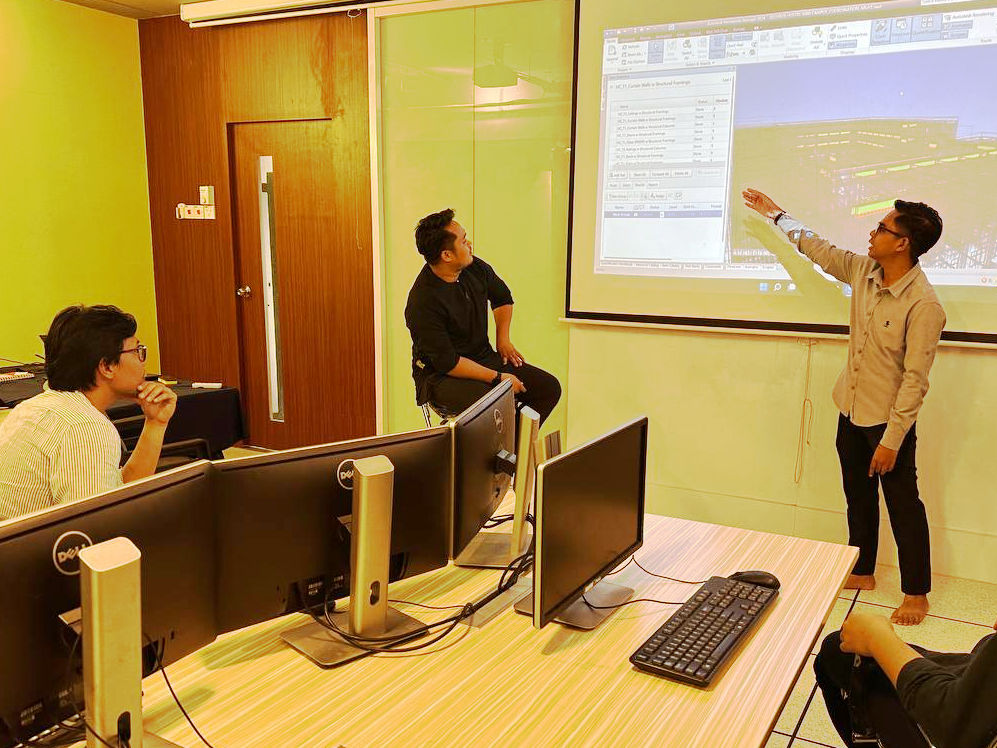16 May 2024
Team Malaysia shares its goals for WorldSkills Lyon 2024
The Southeast Asian country is leveraging the opportunities and resources of WorldSkills to support its plan to expand and modernize the construction sector.

A Member of WorldSkills since 1992, Malaysia has participated in ten WorldSkills Competitions, sending more than 140 Competitors to prove their skills on the global stage.
For WorldSkills Lyon 2024, Team Malaysia will consist of 15 Competitors, 14 Experts, and a delegation of advisors from industry and the education sector who will support the Experts with technical guidance and a wealth of knowledge and experience.
Team selections were based on performances at WorldSkills ASEAN Singapore 2023, WorldSkills Asia Abu Dhabi 2023, and the national competition. Competitors will now receive intensive training to prepare for the Competition in Lyon.
Muhammad Arif Irfan bin A’ali Zaini is one such Competitor who will represent his country in Digital Construction, with help from his Expert, Dr Ahmad Tarmizi Bin Haron, Associate Professor in Building Information Modelling and Construction Innovation at University Malaysia Pahang al-Sultan Abdullah.
The Eleventh Malaysia Plan (PDF, 1.3MB), a development plan implemented from 2016 to 2020 to expand economic prosperity and improve the lives of Malaysians across all segments of society, focused on the digitalization of industries. In the construction sector, for example, the future workforce needed to be trained in the skill of Building Information Modelling (BIM).
BIM is a way to create and manage information about a project throughout its construction. It provides a complete digital model of the project, which can be updated and improved at key stages. The process is highly collaborative, encouraging architects, engineers, and contractors to work together more effectively, creating buildings with a longer lifespan, and better suited for their purpose.
Following this plan, the country’s Technical and Vocational Education and Training (TVET) system developed learning modules that could be integrated into existing curricula within several roles and professions.
“At the time, Digital Construction was not yet an official skill at WorldSkills Competitions. Then we saw how our BIM module could be complemented by the technical description of the WorldSkills Occupational Standards, and we started embedding them within our curricula,” says Dr Tarmizi Bin Haron. “We have not only improved the standards within our training, but indirectly also within industry. Industry has now shown much interest in implementing visual programming and cloud-based platforms into their projects.”
For both Competitor and Expert, WorldSkills Lyon 2024 will be a new challenge. Muhammad Arif Irfan says that, with the help of his instructors, he is aiming at completing his projects “as perfect as possible,” focusing on the details and avoiding mistakes so he can do the job “smoothly.” With the hopes of winning “at least a bronze medal,” he admits he is both excited and nervous.
WorldSkills Lyon 2024 will also be an opportunity for Malaysia to connect with other countries says Mariam Binti Ahmad, Technical Delegate Assistant. Their objective is to “expand cooperation on the construction sector, digitalization and AI, as this is aligning with national priorities.”
Being part of WorldSkills for more than 20 years has helped the Southeast Asian country to establish productive partnerships with countries like Japan, China, and Australia, opening opportunities for training, as well as friendly Competitions that have helped them improve the country’s skill development initiatives.